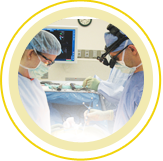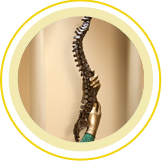If your child has scoliosis, or if you’re managing it as an adult, you may wonder whether it’s safe to stay active or participate in sports. The good news is that in most cases, scoliosis does not have to limit physical activity. In fact, exercise plays a crucial role in maintaining spinal strength, improving posture, enhancing mobility, and boosting overall confidence.
Understanding how scoliosis affects the body can help you choose activities that support spinal health while avoiding unnecessary strain on the spine. Let’s take a look at the impact of scoliosis, which sports are generally safe, and when to reach out to a spine specialist.

How Scoliosis Affects Movement and Flexibility
Scoliosis causes the spine to curve sideways, sometimes with a slight rotation. Depending on the degree of curvature and the age of the patient, the condition can affect:
- Flexibility (especially in the lower back)
- Core strength and balance
- Range of motion
- Breathing capacity in cases of more pronounced thoracic curves
However, for most children and adults with mild to moderate scoliosis, these changes do not prevent them from participating safely in sports. Many athletes, even at high levels, have scoliosis and continue to perform well with proper monitoring and support.
Is It Safe to Play Sports With Scoliosis?
For most people, the answer is yes. Staying active can actually improve spinal health by strengthening the muscles that support the spine, enhancing posture, and maintaining mobility. Physical activity is not known to worsen scoliosis, and in many cases, it helps individuals feel more comfortable and confident in their movement.
Benefits of exercise for scoliosis include:
- Improved core strength
- Better balance and coordination
- Reduced back discomfort
- Stronger muscles supporting spinal stability
- Healthier posture and body mechanics
Most individuals with scoliosis are encouraged to remain active unless their spine specialist advises otherwise.
Sports That Are Generally Recommended
Many activities are safe and even beneficial for spinal health:
- Low-Impact Aerobic Exercise
Walking, swimming, and cycling help improve endurance without putting excess pressure on the spine. Swimming is especially helpful because the water supports the body and allows for freer, low-strain movement. - Strength Training
Light to moderate strength training — especially exercises that target core stabilization — can help strengthen the muscles that support the spine. Proper form and supervision are important for avoiding unnecessary strain. - Pilates and Yoga (With Modifications)
These practices improve core strength, flexibility, and posture. Some poses, especially those involving deep backbends or sharp twists, may need modification depending on the individual’s curve. - Non-Contact Sports
Running, dance, tennis, and volleyball are often safe when practiced with good technique and overall body awareness. Cross-training can help balance out any asymmetric movements.
Sports You Should Approach With Caution
Some activities place higher stress on the spine or involve repetitive asymmetrical movements. These are not necessarily off-limits, but they may require guidance from a specialist:
- High-Impact or Collision Sports
Football, wrestling, and certain forms of gymnastics can increase the risk of injury due to sudden impact, falls, or extreme body positions. Participation may depend on curve severity, pain levels, and a specialist’s guidance. - Heavy Weightlifting
This refers especially to lifts that load the spine significantly (such as squats, deadlifts, and overhead presses). These may be possible with modifications or supervision, but they shouldn’t be started without professional guidance. - Sports with Uneven Loading
Golf, softball, and throwing sports can create uneven forces on the spine because of repeated one-sided motions. These activities are still common choices for people with scoliosis, but they may require targeted strengthening to keep the body balanced. - Activities with Deep Backbends or Extreme Twisting
Competitive cheerleading, some dance movements, and advanced yoga poses can place strain on the spine. Modifying these movements often allows safe participation.
Remember: Every scoliosis curve is unique. What’s completely safe for one person may require modification for another, so make sure you get specialized guidance that is specific to you.
How a Spine Specialist Can Help
A scoliosis specialist can evaluate the type, severity, growth patterns, and overall spinal health to create a personalized activity plan. This may include:
- Monitoring curve progression
- Recommending safe movement patterns
- Providing exercises that strengthen the spine
- Advising which sports to prioritize or modify
- Offering bracing guidance if needed
If pain increases during activity or performance becomes difficult, a specialist evaluation is essential.
Staying Active (With Care) Is Good for the Spine
Most people with scoliosis can safely participate in sports, and many benefit from doing so. Exercise builds strength, improves posture, and supports long-term spinal health. With the right guidance, the goal isn’t to avoid activity; it’s to stay active in a way that supports your body.
If you or your child have scoliosis and want personalized advice about sports or exercise, schedule a visit today with our spine specialists at Spine & Scoliosis Specialists in Greensboro, NC. We’re here to help you stay strong, confident, and safely active.









